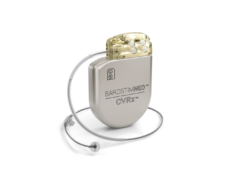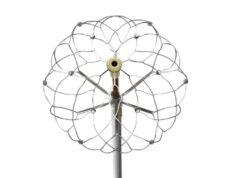
The first in-office implant of Medtronic’s miniaturised cardiac monitor has been completed as part of the Medtronic Reveal LINQ In-Office 2 (RIO 2) study. The world’s smallest cardiac monitor was successfully implanted in an office setting at Scripps Clinic in La Jolla, USA, by cardiologist John Rogers.
The RIO 2 study will determine if the Reveal LINQ insertable cardiac monitor (ICM) procedure, performed in an in-office setting, is as safe as procedures performed in a traditional hospital setting, such as an operating room, cardiac catheterisation laboratory or electrophysiology laboratory.
“Studies such as RIO 2 may enable physicians to provide their patients with even greater access to the latest diagnostic tools and therapies,” said Rogers. “In-office procedures have the potential to help patients and reduce costs to the healthcare system.”
RIO 2 is enrolling approximately 540 patients in 30 centres across the USA in a two-arm, prospective, un-blinded study in which patients will be randomised 1:1 to either receive the Reveal LINQ ICM in an office setting or in a traditional hospital setting. Patients will be followed for approximately three months and evaluated for procedure and device-related complications, and also for procedure time and resources required to perform the procedure.
The RIO 2 study also is enrolling approximately 150 patients in 15 centres across Europe, Australia and Canada. This observational study will examine clinical evidence to support moving the LINQ insertion procedure from the traditional hospital setting to new locations within the hospital, or “out-of-lab.”
“Physicians have embraced Reveal LINQ ICM for its ease of use, and moving the insertion procedure to the office setting has the potential to improve patient access to cardiac monitoring while enhancing the overall patient experience,” said Nina Goodheart, vice president and general manager of the Diagnostics business in Medtronic’s cardiac rhythm and heart failure division.
Cleared by the US Food and Drug Administration (FDA) in 2014, the Reveal LINQ ICM system is placed under the skin of the chest using a minimally invasive insertion procedure and allows physicians to continuously and wirelessly monitor a patient’s heart through the Carelink Network for up to three years.









